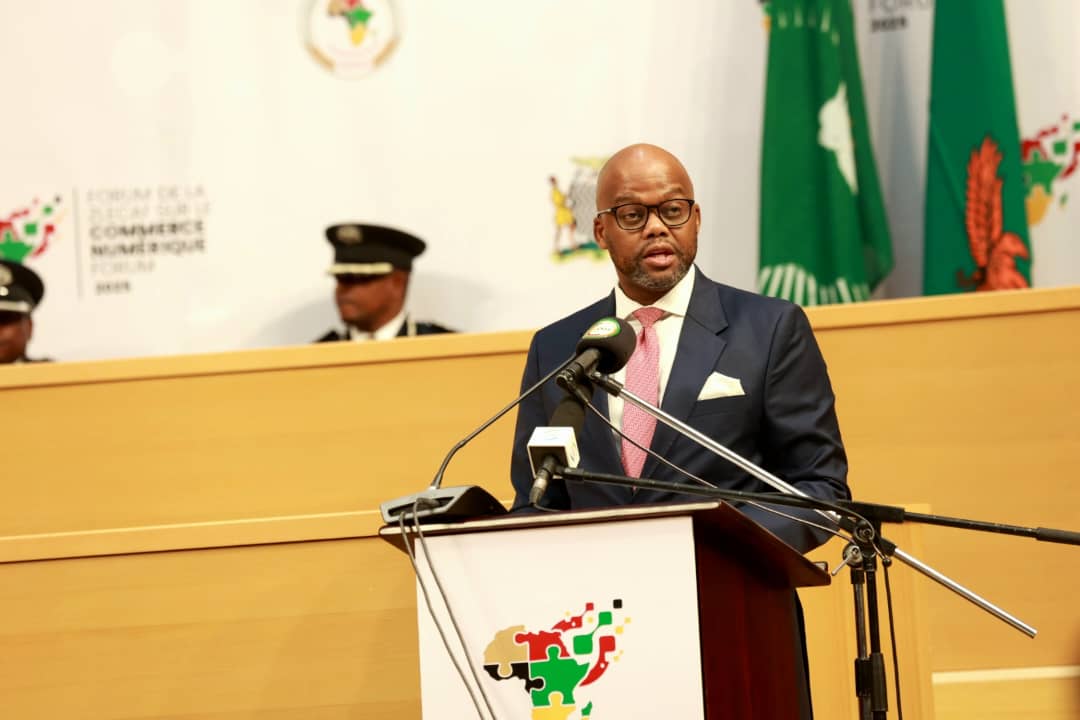The Deputy Speaker of the House of Representatives, Benjamin Kalu, has noted Nigeria’s efforts to meet global demands for sustainable social development and justice.
Speaking on Sunday at the 150th Assembly of the Inter-Parliamentary Union (IPU) in Tashkent, Uzbekistan, on the topic “Parliamentary Action for Social Development and Justice,” Kalu cited the Country’s key legislative achievements in recent years, saying that they are a testament to Nigeria’s commitment toward realizing these objectives.
He said, “Nigeria has taken decisive steps to meet the global demand for sustainable social development and justice. Our legislative achievements in recent years bear testimony to our unflinching commitment. One of the key pillars of our strategy has been the establishment of regional development commissions.
“Over the past year, the Nigerian Parliament has enacted legislation to create four new regional development commissions.
“These bodies are dynamic institutions tasked with channeling resources where they are needed most, ensuring that policy interventions are tailored to the unique challenges and opportunities of each region.
“By decentralizing our development efforts, we are breaking away from the one-size-fits-all approach and ensuring that every region can chart its own course toward sustainable progress.
“We passed the Student Loan Act 2024 to make higher education accessible to the underprivileged; established national commissions for Mass Literacy, Almajiri and Out-of-School Children, Nomadic Education, Refugees and IDPs, and Persons with Disabilities; strengthened healthcare by ensuring free emergency treatment for pregnant women and expanding health coverage via the National Health Insurance Authority; expanded health coverage and created financial support systems—including non-collateral loans for youth and women cooperatives, entrepreneurship grants for NYSC members, and mandatory entrepreneurship education in universities; advanced social inclusion with the Not Too Young to Run Act to open governance spaces for youth, are considering five new gender equity bills to boost women’s representation, and have enhanced funding for the Ministry of Women Affairs for grassroots empowerment; and passed the Nigeria Startup Act 2022 and Companies and Allied Matters Act 2020 to unlock digital opportunities for young entrepreneurs and tech innovators, especially women.”
Kalu also explained another significant legislative measure, the new minimum wage bill, which, according to him, not only safeguards the rights of workers but also lays the foundation for a more dynamic and productive economy.
The deputy Speaker commended President Bola Ahmed Tinubu’s government for implementing tax reforms.
He also noted that the parliament has initiated a robust oversight function to ensure compliance, transparency, and accountability.
“Complementing these initiatives are our progressive tax reforms, driven by our progressive reformer, President Bola Ahmed Tinubu. The recent tax reform bills, which emphasize a progressive taxation framework, are designed to ensure that those who benefit the most from our nation’s economic activities contribute their fair share, while vulnerable Nigerians are not overly burdened.
“These reforms are critical in generating additional resources to fund our expanding portfolio of social services and infrastructure projects. In essence, by strengthening the fiscal backbone of our government, we are better equipped to invest in the sectors that will lift our society as a whole.
“A cornerstone of our approach is robust parliamentary oversight. Effective oversight ensures that public funds are judiciously managed and that our social investments reach the intended beneficiaries.
“In Nigeria, we have strengthened our oversight structures, reinforcing transparency and accountability in all aspects of governance. This is essential not only to maintain public trust but also to ensure that every legislative measure translates into tangible improvements in the lives of our citizens.
“Inclusivity in governance remains a driving force behind our policies. As part of our commitment to social inclusion, we have embarked on a comprehensive strategy to ensure universal access to basic services. Over the past two years, targeted social investments by Nigeria’s federal executive have reached more than five million households.
“These initiatives are specifically designed to support the most vulnerable segments of our society, including older adults, persons with disabilities, and children. Our goal is clear: justice is achieved when every Nigerian—regardless of status—is given a fair chance at prosperity,” he said.
The deputy Speaker expressed concern that the African continent is burdened by a huge debt profile that strains its public finances, making it difficult to realize sustainable social development.
“The path to sustainable social development is not without its challenges, especially for Africa. The continent is burdened by a huge debt load that strains public finances and often limits the resources available for social investments. Can Africa optimize social development justifiably in the face of such financial constraints?
“This is a critical question, and while the debt burden presents formidable challenges, it must not be an excuse for inaction. Instead, it calls for innovative fiscal policies, debt restructuring, and, importantly, greater support from the global community,” he said.
He, however, assured that Nigeria’s journey toward social development and justice is defined by a steadfast commitment to human dignity, equity, and sustainable progress.
“Today, as we deliberate on parliamentary action for social development and justice, I call upon all members of this esteemed assembly to reaffirm our shared commitment to a new social contract—one that places people at the center of every decision and prioritizes robust oversight and accountability,” he concluded.
Please follow and like us:









